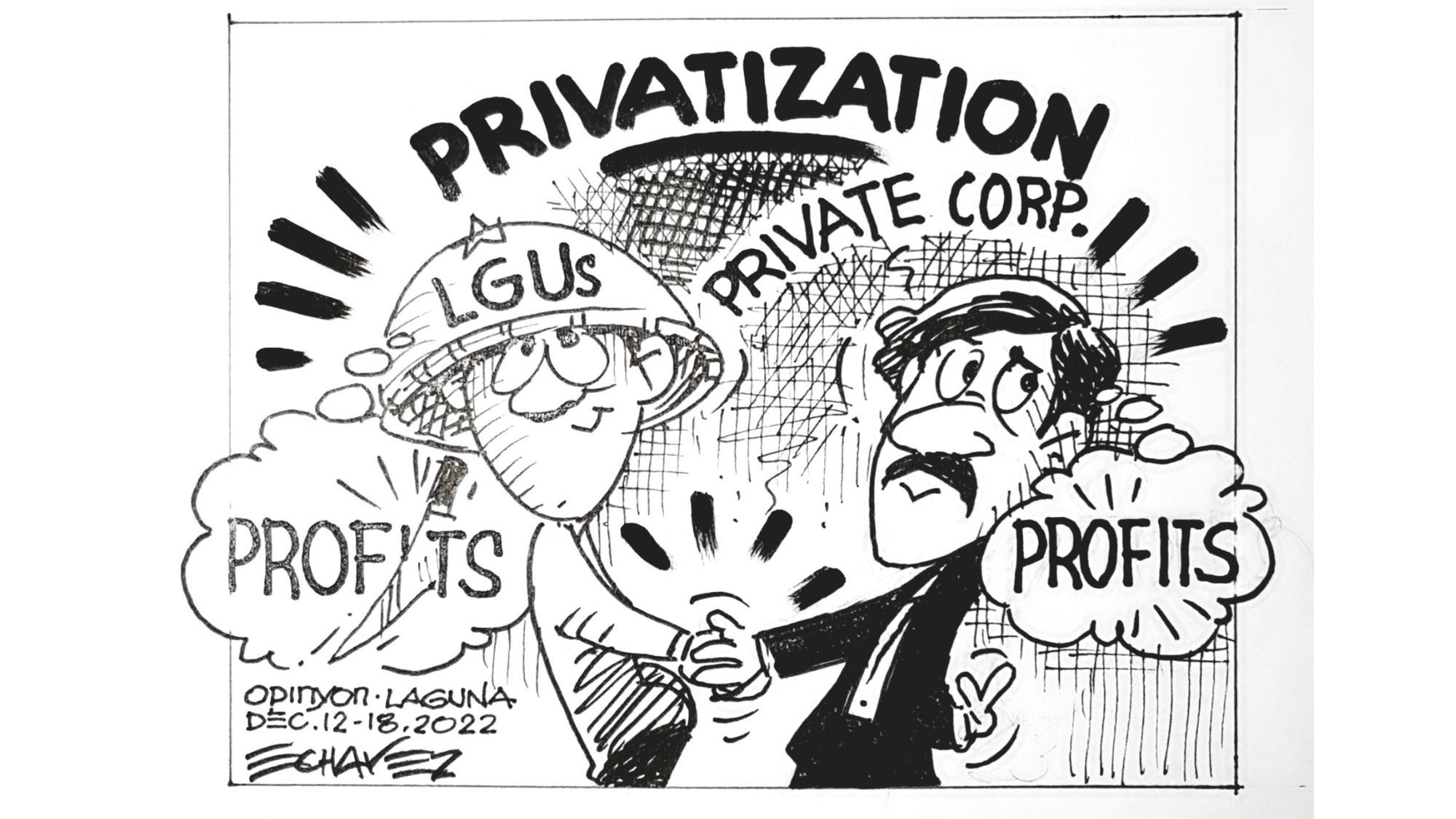In the past years, we’ve seen a trend of local public utilities in Laguna province being taken over by private corporations, either through joint venture agreements or “build-operate-
The main argument for those who support this kind of privatization is that big business conglomerates can deliver fast, efficient and cost-saving service to their customers far better than the local government units.
And LGUs – either believing in good faith that privatizing their public utilities can ensure better service for their constituents, or (if rumors are to be believed) hoping to get a cut of the profits – are only too eager to hand these utilities over to private businesses.
However, has the time now come for our LGUs to reassess whether these agreements they made really made the difference for their constituents?
In San Pedro City, Laguna, for instance, there are two prominent cases of "privatization" resulting only in hardship for the ordinary consumer.
There's the case of the Suki Market, where stallholders have complained for years about the "exorbitant" fees allegedly being charged by the private corporation that runs the market under a "build-operate-transfer" scheme.
The private operator of San Pedro City's public market, take note, has also reportedly defied local legislation and court rulings ordering them to charge "fair" rents to their stallholders.
Many of these stallholders, already beset with high prices of their products, have no choice but to pass the costs from their rental fees to the consumers who now have to tighten their belts even further due to "record-high" inflation rates.
In another instance, the local government's decision to hand over the city’s main water supply to a large business conglomerate like PrimeWater has only resulted in consumers suffering from inadequate (or poor quality) water supply in the past seven years.
These examples are just one of the many "horror stories" of privatization of our public utilities that, in the long run, has proved to be a "lose-lose" situation for both LGUs and their constituencies.
They should serve as cautionary tales for our local government units in handing over their vital facilities to private conglomerates who are most likely driven by profits, no matter what the cost.

